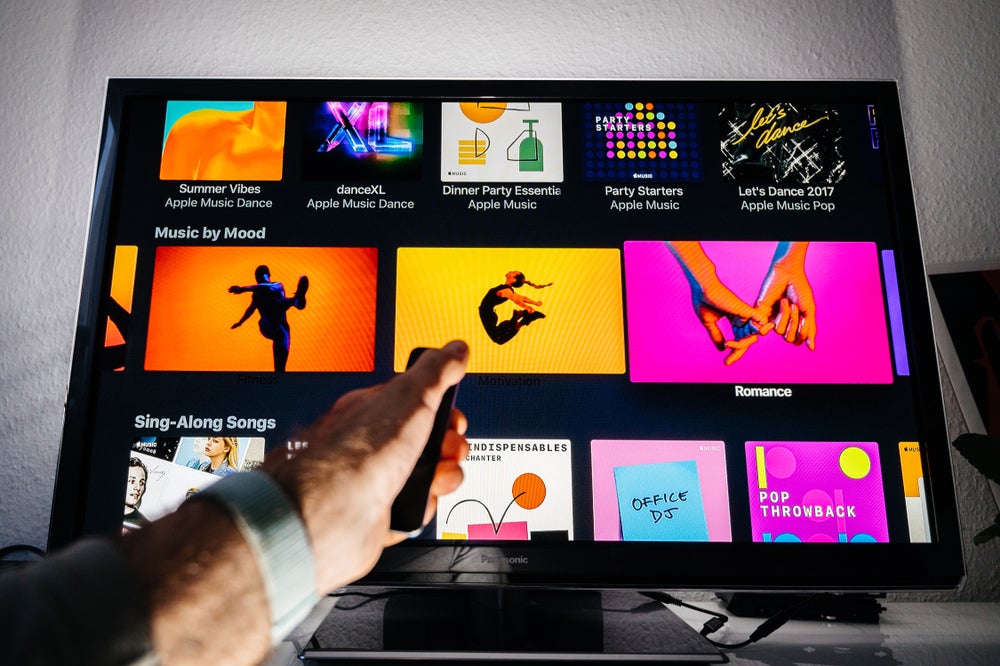
In a groundbreaking move back in 2015, Marriott pioneered the integration of Netflix into their hotel rooms, enabling guests to enjoy their personal Netflix accounts directly on the in-room TV.
Alongside Netflix, guests were granted access to a range of other services, including Stan and Pandora. This shift marked a significant departure from the declining trend of pay-per-view offerings, embracing the evolving preferences of hotel guests.

Discover B2B Marketing That Performs
Combine business intelligence and editorial excellence to reach engaged professionals across 36 leading media platforms.
The decline of scheduled TV programming is undeniable as viewers increasingly seek the flexibility to watch their favourite shows on their own terms. The rise of streaming services exemplifies the rapid pace of this transformation, allowing viewers to enjoy content at their preferred time and location.
While advancements in technology enhance viewers’ experiences, it is crucial to remain vigilant and informed about the potential security implications of these innovations.
Experts have highlighted the security concerns associated with connecting to hotel Wi-Fi networks and emphasised the need for caution.
A recent article in Lifewire, a technology news and information magazine, provides some insights into the potential risks and offers recommendations to ensure a safe and enjoyable streaming experience.

US Tariffs are shifting - will you react or anticipate?
Don’t let policy changes catch you off guard. Stay proactive with real-time data and expert analysis.
By GlobalDataThe potential security risk
iOS 17, set to be released in the autumn of 2023, will introduce a new feature that allows users to stream videos to hotel-room TVs using AirPlay by simply scanning a code.
While this may seem like a convenient solution, there are concerns about the security risks associated with connecting to hotel Wi-Fi networks.
According to cybersecurity experts, public Wi-Fi networks such as these pose a significant security risk.
Without proper security measures, which include using a VPN (virtual private network), hackers may intercept and view users’ browsing sessions, collect personal information, or even install malicious software on their devices.
Introducing intelligent AirPlay
Intelligent AirPlay, a feature coming to iOS 17, utilises artificial intelligence to enhance the user experience. It offers suggestions for nearby speakers for connection, and enables streaming video content to hotel TVs.
Users only need to scan a QR code to connect to the hotel’s Wi-Fi and access AirPlay.
The problem with hotel Wi-Fi
Hotel Wi-Fi networks, like any public Wi-Fi, are considered risky due to their vulnerability to exploitation.
Users often have to transmit sensitive data, such as credentials and passwords, over these networks to access their email or other services. Malicious actors can take advantage of poorly secured networks to harvest personal information without the network owner’s knowledge.
Protecting yourself
The most effective way to safeguard against the dangers of public Wi-Fi is to avoid using it altogether. Relying on your phone’s data plan and using your laptop or iPad to watch movies can offer more security.
Alternatively, using a VPN can help to encrypt your data and provide a safer connection, although it’s essential to choose a reputable VPN provider.
The verdict
While Apple claims that the new feature is built on a foundation of privacy and security, experts remain cautious. As devices become more complex and convenient, they often come with potential security risks.
It remains to be seen if Apple has implemented robust security measures to address the concerns surrounding hotel Wi-Fi connections.
Users should therefore stay informed and exercise caution when using hotel Wi-Fi networks to protect their personal data and ensure a secure online experience.



